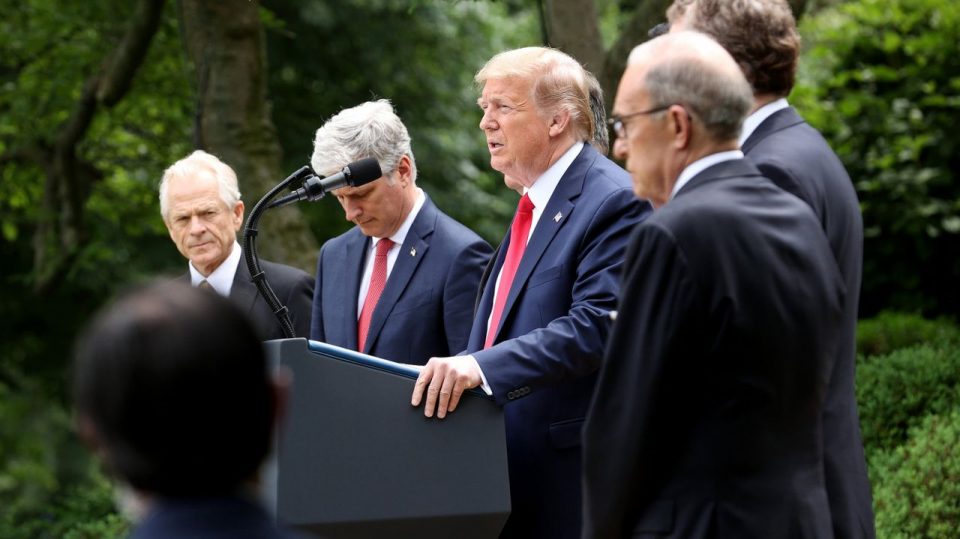President Donald Trump keeps getting caught flat-footed when called on to confront crises.
For the second time this year, Trump appears to be adjusting his political posture to big events in China for which he seemed unprepared. On Feb. 10, with the coronavirus spreading worldwide, he said: “I spoke with President Xi, and they’re working very, very hard. And I think it’s all going to work out fine … I think China is very, you know, professionally run in the sense that they have everything under control.”
Trump hesitated to modify his rosy message even as the virus spread out of Wuhan. Last month, however, as he drew widespread criticism for the federal government’s halting responses, he looked to Beijing in assigning blame. “This virus should not have spread all over the world. They should have put it out,” Trump said May 10. He complained that the World Health Organization was manipulated by China, although he had praised the WHO earlier in the crisis.
Now the focus shifts to Hong Kong, where a security law approved in Beijing could destroy the city’s autonomy. This lunge for expanded control by President Xi Jinping came off as abrupt, but it was no shock to China-watchers. On Friday, Trump announced punitive measures in response.
Last year, the American president appeared to hesitate before he signed a veto-proof sanctions bill from Congress. “We have to stand with Hong Kong, but I’m also standing with President Xi,” Trump said Nov. 22. “He’s a friend of mine. He’s an incredible guy … But I’d like to see them work it out.” Hardly a strident stance for human rights, it came as Trump pushed a trade deal that still hasn’t materialized.
Minneapolis and other American cities have blown up over George Floyd’s widely condemned death while in police custody. In this crisis, too, Trump’s reaction was halting. First he got around to deploring the Minneapolis man’s death, then he blasted the protesters starting in the wee hours Friday on Twitter. His posturing about deploying the military and blaming the left came long after forces and players that set the disturbances in motion were well underway.
Trump tweeted early Friday that he had assured Minnesota’s governor that the U.S. military was “with him all the way.” The president continued, “Any difficulty and we will assume control but, when the looting starts, the shooting starts.”
Chances are the results might be the same as what we’re seeing had Trump stayed silent. Fired Minneapolis Police Officer Derek Chauvin has been arrested and charged with third-degree murder and manslaughter, but outrage mounted as protesters sought upgraded charges for him, as well as charges for three other fired officers at the scene.
Twitter flagged Trump’s “shooting-looting” rhyme with a note saying it violated the platform’s rules against “glorifying violence,” but it would remain posted because it “may be in the public interest” for it to be accessible.
Social media controversies have lasted through three-plus years of Trump’s term, during which the president tweeted thousands of times. Election manipulations and Russian bots drew particular interest. Last week, Trump issued an executive order on the matter that promises, among other things, to be of dubious impact.
Many legal experts see the new order, which would curb protections for internet companies under the Communications Decency Act of 1996, as likely to be struck down in court.
In issuing the order, Trump and Attorney General William Barr are fueling a partisan talking point: that some of the big online social media platforms are “biased” against conservative voices. Ironically, the order — if taken seriously — could pressure platforms such as Twitter and Facebook to take down Trump’s own frequent online falsehoods for fear of legal liability.
This looks for the moment like another of the president’s blurry directives. Like the others, it does not seem to run the political risk of producing real results for which he could be held responsible.



